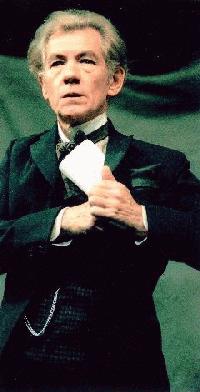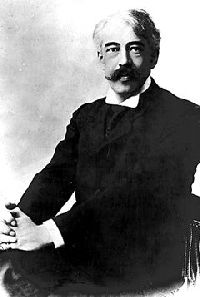|
Massacre
In that time of political unrest — it was not long before the first revolution — the
feeling of protest was very strong in all strata of society. A hero who could tell
the truth strongly and bravely in the very teeth of the government was awaited. It
is not surprising that the character of Dr Stockmann became immediately popular in Moscow,
and even more so in Petrograd. An Enemy of the People became the favourite
play of the revolutionists, despite the fact that Stockmann himself despised the majority
and believed in individuals . . . But Stockmann protested, Stockmann told the truth, and
that was enough.
|
Censors
The atmosphere was such that we were in constant expectation of the performance being
stopped and arrests made. Censors, who sat in on every performance of An Enemy of
the People and saw to it that I used only the censored text . . . were on this evening
even more watchful than usual . . . .
In the last act Dr Stockmann, rearranging his room which has been stoned by the crowd,
finds his black coat in the general chaos . . . Seeing a tear in the cloth, he says to his
wife: 'One should never put on a new coat when going to fight for freedom and truth.'
|
|

Ian McKellen as Dr. Stockmann in An Enemy of the People
|
Pandemonium
The spectators connected this sentence with the massacre in Kazansky Square, when more
than one new coat must have been torn in the name of freedom and truth, and my words
aroused such pandemonium that we had to stop the performance . . . The entire audience
rose from their seats and hurled themselves towards the footlights. As the stage was
very low and there was no orchestra pit, I could see hundreds of hands stretched towards
me, all of which I was forced to shake. The younger people in the audience jumped
onto the stage and embraced Dr Stockmann. It was not easy to establish order and
continue with the play. That evening I found out at first hand what power the
theatre could exercise.
|

 Konstantin Stanislavski
Konstantin Stanislavski 